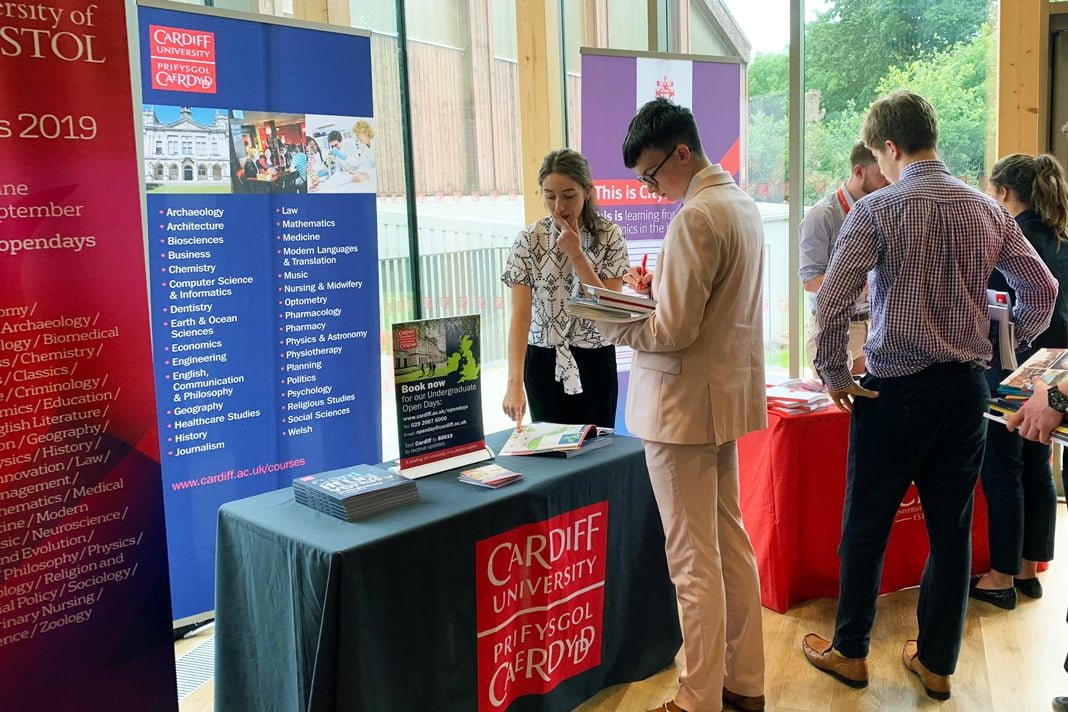Brian Schofield, Head of Upper Sixth at Hurst College, discusses the shifting post 18 landscape and what young people need to consider when it comes to university alternatives
The young man’s voice was confident and clear over the murmur of a busy office. “I’ve no regrets whatsoever. I always knew this was the right thing for me, it’s just a natural fit. I’m already training up new recruits and I should be leading my own team in a couple of years. The office is in Battersea, so I’m living in a flat share in Balham. It’s all worked out brilliantly.” I couldn’t fail but be impressed with this Hurst alumnus, making headway (and a decent salary) in a technology recruitment consultancy firm – particularly as he had only just turned 19.
Could you have wandered into an office and started work straight out of school? Perhaps you did, and remain sceptical about the British middle-class obsession with the expensive rite of passage that is university. I, for one, certainly needed uni, as a time to grow up and to gain a sense of direction, having a lot of fun in the process. But young people are increasingly aware that university is not for everyone; nor is it always tremendous value for money. Schools need to respond to this shift, dedicating time and resources to researching alternative next steps, while being cautious not to sacrifice any pupil’s precious future to faddism.
“University remains a marvellous adventure, but must be treated more like work”
At Hurst, our research into university alternatives has thrown up several reasons to be cautious about burning your UCAS guidebook too hastily. First, there’s not as much choice of reputable alternative pathways as you might think. Degree apprenticeships are a thing of wonder; another alumnus recently started work at a surveying firm in Canary Wharf within weeks of his A-level results, and will have a degree in surveying, debt free, by the time he’s 23. They are also fairly rare. In 2019-20 only 13,400 young people started a degree apprenticeship – around the same number as started at Manchester University.

Secondly, university is less exposed to the slings and arrows of economic fortune – we recently had a student lose his hard-won apprenticeship pilot spot – cancelled with a week’s notice for obvious viral reasons (he got a place to read Physics at Nottingham instead, and I’m sure he’ll reach take-off eventually). And finally, as my young friend in the Battersea recruitment consultancy put it: “Skipping uni and heading straight into work is only for people with a really clear idea of what they want to do. Work is not the best place to ‘find yourself’”.
There are clearly two trends at work. The first is the shift away from university as a default option. The second is towards more uni – the increasing likelihood that students will gain a sense of direction during their undergraduate years, but only gain their first professional job after a career-orientated Masters. Parents may not be delighted to hear this, but we are becoming more European in this regard – Batchelors, then Masters, then finally a paycheck.
My best advice is to stop seeing the choice as so binary. University remains a marvellous adventure, but must be treated more like work – securing internships, taking up the offer of a year in industry, maybe starting a micro-business before you leave. If young people want to miss uni out altogether, they need plenty of specialist guidance – but those who choose the UCAS path also need to know it no longer automatically leads to professional employment. As is so often the case, we have to accept that the relative simplicity of our salad days is not so accessible to the young people we watch over today.
Hurst College hppc.co.uk
Further reading: Merchiston Castle School on teaching entrepreneurship
You may also like...

























